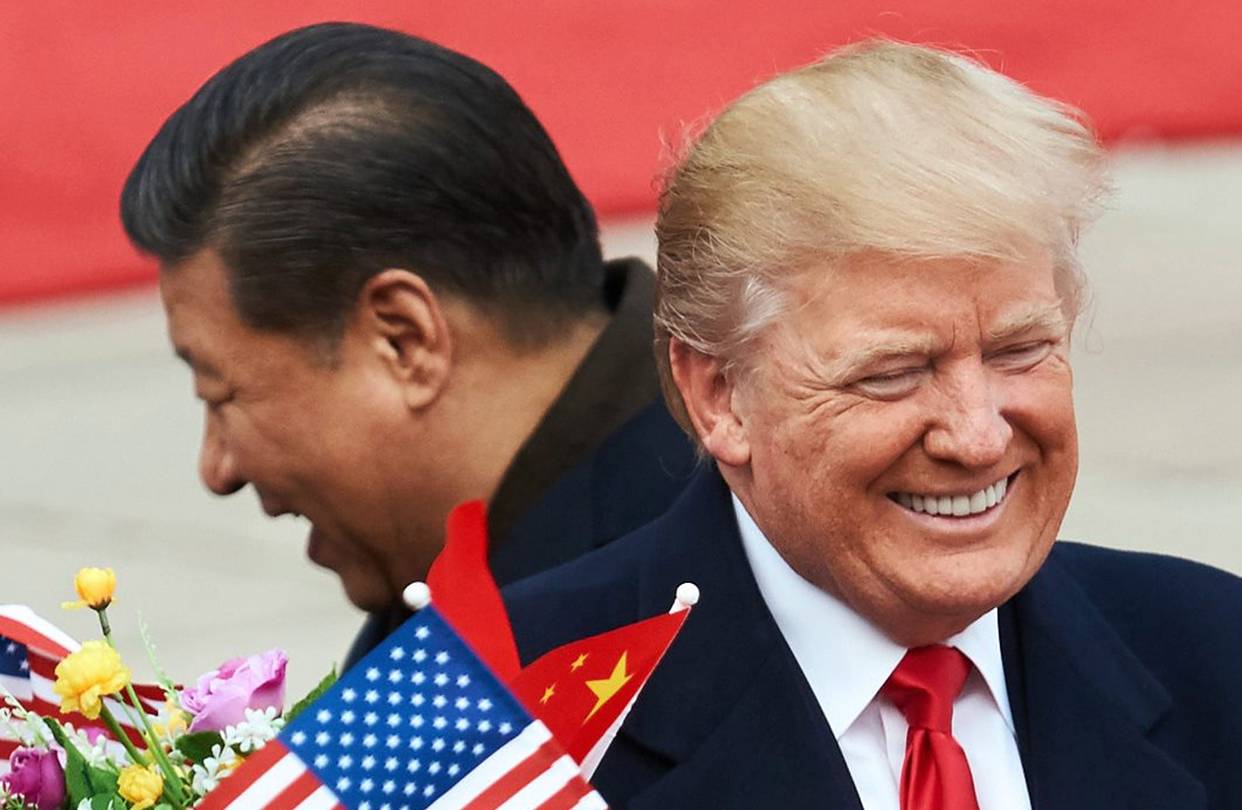
Wall Street Journal writes that on its face, Donald Trump's deference to Xi Jinping at their summit was a victory for China, although not nearly the surrendering of U.S. leadership in Asia to the Chinese strongman that some critics allege. Mr. Xi's China, Mr. Trump said, paying fulsome tribute to the omnipotence of the newly crowned supreme leader standing next to him, could fix the Korean nuclear crisis "easily and quickly." On Chinese trade abuses, he appeared to absolve Mr. Xi of all responsibility, provocatively suggesting there is honor in the way Chinese leaders game the global trading system to win advantage for their people. "I give China great credit," he said. Look beyond the flattery, however, and a harder-edged strategy comes into focus. As Mr. Trump lavished praise on the Chinese president—"you're a very special man," he purred—three U.S. aircraft-carrier strike groups prowled the Western Pacific. They are a reminder of the military options the Pentagon is weighing against Pyongyang, knowing that while China could do more to pressure Kim Jong Un to slow his nuclear buildup, Mr. Xi's leverage is in fact limited.
Financial Times writes: "Courtesy demands reciprocity, as the Chinese saying goes. US president Donald Trump was effusively courteous during his visit to China last week, at one point describing Xi Jinping, his Chinese counterpart, as a "very special man". On one level, therefore, Beijing's announcement of a financial market liberalisation on Friday — a day after Mr Trump left the country — might be interpreted as a reward. But any such symbolism is the least significant aspect of China's decision to ease limits on foreign ownership of financial services groups. Under the announcement, foreign firms will be allowed to hold a majority stake in joint ventures with Chinese securities companies and life insurers. In addition, caps on foreign banks' stakes in Chinese banks and asset managers are to be removed, according to a statement by China's state council. The move is important in two ways. The liberalisation — for which a full timetable has not been announced — ranks as one of China's biggest in financial services since the country joined the World Trade Organization in 2001. China has used joint venture requirements and ownership caps in a range of industries to protect domestic groups from competition, and to induce sharing of foreign technology and expertise. But this opening is also a gift that Beijing is giving to itself. China needs the governance standards and competition that the world's top banks, insurance companies and investment funds can bring to its domestic market. If any proof of this were needed, the words of Zhou Xiaochuan, governor of the People's Bank of China, should provide it.
- 2017-11-10 China's Xi preaches 'openness' and 'cooperation' after Trump comes out swinging
- 2017-11-09 Trump trades barbs for flattery in gambit to win over China
- 2017-11-08 Trump, in China, Seeks Help on North Korea
- 2017-11-07 Bitcoin proves hard to kill in China
- 2017-11-06 Weakened Trump Looks to the ‘King of China’ to Give Him a Boost
- 2017-11-05 A more hawkish Trump approach to China is coming soon
- 2017-11-03 China’s soft power comes with a very hard edge
- 2017-11-02 Facebook, Take Note: In China’s ‘New Era,’ the Communist Party Comes First
- 2017-11-01 South Korea and China move to normalize relations after THAAD dispute
- 2017-10-31 Chinese ambassador responds to Trump’s trade complaints: ‘Look in the mirror’
- The Washington Post Chinese President Xi makes state visit to Vietnam
- Reuters Vietnam, China avoid quarrel over South China Sea during visit
- Reuters Philippines president says South China Sea row 'better left untouched'
- Reuters Trump and Vietnam's president underscore free and open access to South China Sea
- www.huffingtonpost.com Moon to Visit China Next Month
- Bloomberg Alibaba's Rise Creates At Least 10 Billionaires Not Named Jack Ma
- Forbes The Other Side Of Singles' Day: Alibaba's Virtual Reality Testing Ground
- Reuters China's JD.com, Alibaba rival, reports $19.1 billion in shopping event sales
- Wall Street Journal Surveillance Cameras Made by China Are Hanging All Over the US
- futurism.com China is Building 30 "Sponge Cities" to Soften the Blow of Climate Change
- New York Times Chinese Village Keeps Alive a Tradition of Indigo Dyeing
- Financial Times Working with China brings opportunities and investment to Sheffield
- Bloomberg Xi Is Edging Ahead of Trump in Race for Southeast Asia Clout
- The Diplomat China and South Korea: Examining the Resolution of the THAAD Impasse
- The Hill Schumer: Trump 'acts like a lap dog' to China
- The Hill We are paving the way for Chinese dominance in clean energy
